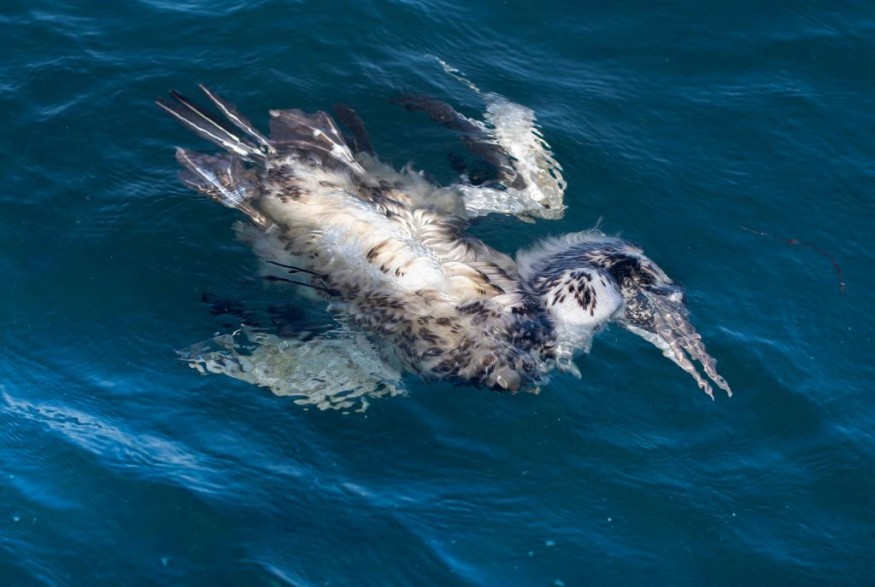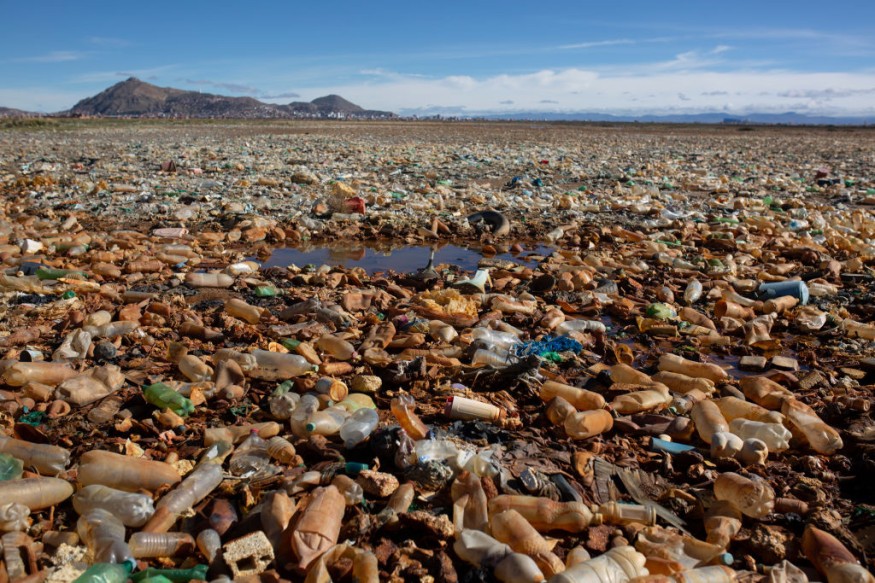Seabirds have been shown to have a novel ailment only brought on by plastic.
According to researchers at the Natural History Museum in London, the digestive tracts of birds diagnosed with the condition known as plasticosis are scarred from consuming trash.

According to researchers via The Guardian, it is the first known occurrence of specifically plastic-induced fibrosis in wild animals.
A Slowly Spreading Disease
According to the study published in the Journal of Hazardous Materials, scarring was ubiquitous in birds of various ages.
This is because plastic pollution is becoming so pervasive.
When young birds were discovered to be sick, it was found that their parents may have unintentionally given the chicks plastic pollution.
Researchers examined flesh-footed shearwaters from Australia's Lord Howe Island to determine the relationship between levels of ingested plastic and the proventriculus organ, the first portion of a bird's stomach.
The researchers included Dr. Alex Bond and Dr. Jennifer Lavers from the Natural History Museum.
They discovered that a bird's scarring increased with the amount of plastic it had consumed.
The condition may cause the tubular glands in the proventriculus to degenerate gradually.
The loss of these glands may make the birds more susceptible to parasites and infections and impair their capacity to digest food and absorb some vitamins properly.
To make it apparent that plastic in the environment was the source of fibrotic disease, researchers called it plasticosis.
What is Plasticosis?

Little bits of plastic that inflame the digestive tract can induce plasticosis, a type of fibrotic scarring.
According to a 2023 study by Hayley Charlton-Howard, Alex Bond, Jack Rivers-Auty, and Jennifer Lavers, seabirds were sickened by plastic pollution.
The word "plasticosis," created by the researchers, denotes the first known case of plastic-induced fibrosis in a wild animal.
Furthermore, ingesting plastic has severe and far-reaching effects, and only now are we thoroughly documenting and understanding.
They discovered that tiny plastic fragments cause digestive system inflammation in birds.
The ongoing inflammation impairs digestion, growth, and survival, leaving tissues damaged and deformed.
Extensive Study
Pumice stones and other naturally occurring substances identified in the stomachs of birds have not produced the same issues, prompting researchers to identify this illness as uniquely caused by plastic.
Bond, the Natural History Museum's lead curator in charge of birds, said: "Although these birds may appear healthy from the exterior, they may not be doing well internally. This study demonstrates that eating plastic can seriously harm these birds' digestive systems for the first time that stomach tissue has been examined in this manner."
Although only one bird species was researched by the researchers in one region of the world, they predict that more species may be impacted and urge more studies to determine the extent of plasticosis.
They claimed that because plastic pollution is spreading over the globe and plastic emissions are rising, all organisms will eventually come into contact with plastic.
This issue has yet to receive much research because it is a recent development.
Additionally, eating plastic has serious effects that are far-reaching and that we are only now beginning to comprehend and record completely.
Related Article : Alarming Report Considers Plastic Pollution as a Planetary Emergency
For more environmental news, don't forget to follow Nature World News!
© 2025 NatureWorldNews.com All rights reserved. Do not reproduce without permission.





